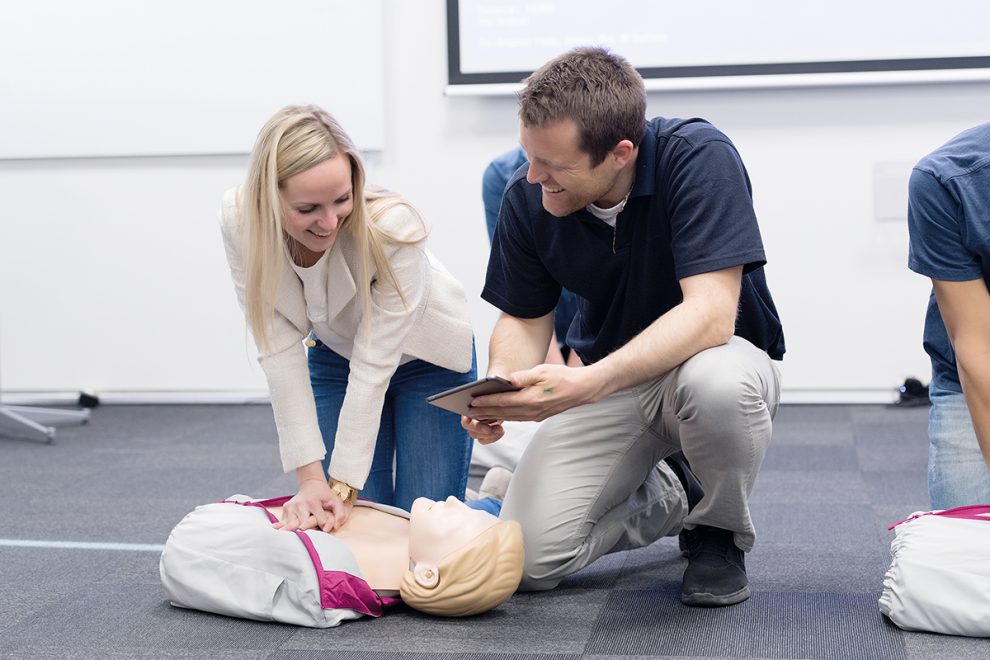SCHOOLS in Wales will now teach first aid and lifesaving skills as part of the new curriculum.
Wales will join England and Scotland by introducing first aid and lifesaving kills to their national secondary education curriculum.
Kirsty Williams, Education Minister had previously rejected the calls for emergency resuscitation skills to be compulsory in school.
Cardiopulmonary resuscitation (CPR) was introduced in the secondary school curriculum in England in September 2020.
Local authorities in Scotland have also committed to introduce lifesaving skills to their secondary education curriculum.
The British Heart Foundation had backed the campaign for CPR to be taught in schools.
In a long fought battle, Suzy Davies, a Welsh Conservative Member of the Senedd for South Wales West, secured the commitment from the Welsh Education Minister in the course of debating amendments to the new Curriculum and Assessment (Wales) Bill, which will make sweeping changes to the way Welsh children are educated.
The new curriculum for Wales is planned to come into force from 2022.
Children, parents, families and medics have long argued that regular teaching of CPR in particular will raise our children to have the skills and confidence to step in and save the life of someone in cardiac arrest if they encounter them outside a hospital setting.
The commitment was included in the Welsh Conservative manifesto for the Assembly election in 2016, and Suzy Davies, the Shadow Education Minister, said:
“After 10 years campaigning for this, I was beginning to wonder if it would ever happen.
“From securing cross-party support for this in my early days as an Assembly Member, through several debates and pitches to different Ministers, on to my own proposed legislation which found favour among Senedd Members, it was difficult to understand why Welsh Government was so resistant.
“In this country, our chances of surviving a cardiac arrest outside hospital are as poor as 10%. In countries around the world where teaching CPR and defibrillator use is compulsory, those odds improve dramatically. These skills are quick and easy to learn and easy to remember.
“ Alun Davies MS – himself a cardiac arrest survivor – has rightly argued that we should be able to learn these skills at any time in our lives and that defibrillators should be a commonplace feature of our public landscape. I couldn’t agree more – but how simple it is to ingrain these skills from an early age and raise generation after generation of lifesavers.”
Under the new curriculum, teachers must follow statutory guidance made by Ministers to support various aspects of the new way of teaching. After changes guaranteed by the Education Minister, this guidance will now instruct teachers that they should teach lifesaving skills and first aid: It is no longer optional.
The mandatory teaching of life saving skills and first aid (not just CPR) has been supported by the medical profession, including paramedics and fire service co-responders, as well as charities like St. John’s Cymru, British Heart Foundation, Calon Defibrillators, Cariad and the Red Cross.
It is taught through many youth groups, including Torfaen Sea Cadets who trained Aneurin Metcalfe, the young man who saved someone’s life only this week.


















Add Comment